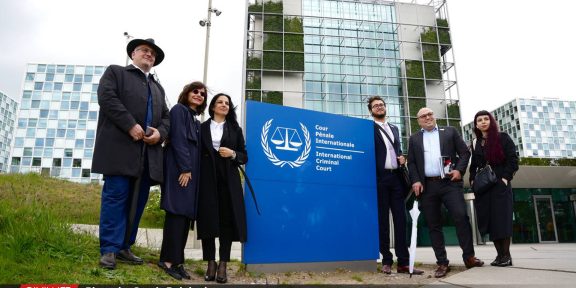Every few years of my adult life I receive the unfortunate, infuriating and hopeless question: “Why don’t Armenians just let go of the Armenian Genocide issue?” Sometimes the question is well-meaning, and often times it is a disguised statement filled with utter repugnance and annoyance. Sometimes it comes from a Jewish law school classmate or a retired U.S. diplomat. Sometimes it comes from a comment to my article or as a political assertion veiled in writing career advice by a Member of the European Parliament. You just have to get past the past.
Every time it happens I am stunned at the disconnect between what Armenians experience as a result of the Armenian Genocide and how the rest of the world perceives it. I can play the Devil’s Advocate, growing up within non-Armenian American communities both in the Midwest and the East Coast and can somewhat understand the naïve perception that 100 years have passed and the people of Turkey are not the same ones that slaughtered our grandfathers in 1915; therefore perhaps, maybe, it’s best to move on, yes?
No.
My response to that inane question is always the robotic, “Would you ask the same question of the descendants of the Holocaust or survivors of Rwanda?” It is no longer amusing as it was to me when I was in my twenties. Now it is scary as hell.
Getting past the past.
At the moment I agreed with this general statement that Armenian events of big caliber tend to center around the genocide of 1.5 million Armenian people, or Nagorno-Karabakh Republic’s right to self-determination, both events ignored then as they were unfolding and both unrecognized by the majority of the world now. They are not cheery, bubbly or comfortable. But as the week went on and the news filtered through my daily newsfeeds and texts and tweets, I understood that this past they speak of is always with us. This past made 400,000 Baku Armenians flee for their lives in 1980s. This past makes Nagorno-Karabakh grade-schoolers study various types of mines, missiles, shells they shouldn’t step on if they find one in their backyard.
As the Azerbaijani military was shelling the civilians of the Armenian border villages right in front of the “neutral” OSCE’s noses, the thought about “getting past the past” twisted around in my brain, making a mockery of the struggle Armenians endure daily while the world yawns. The OSCE’s response to Azerbaijan’s blatant violation of the ceasefire was for both sides to keep level heads as it continues to be “concerned” and dangerously neutral in its response to Azerbaijani dictator Aliyev.
We cannot get past the past if it is our present and our future. We will not.
If the Syrian conflict taught me anything, it is that the international community generally does not care; the ones that do find themselves helpless against the major wheels at play. And the ones that suffer are forgotten almost instantly like the 94-year-old grandmother who was sleeping peacefully in her bed when she was slaughtered by the Azerbaijani military, just like the 1.5 million Armenians of Ottoman Turkey 100 years ago.
If the Armenian Genocide taught me anything it is that no one will remember if we don’t. No one will protect us, if we don’t protect ourselves. Instead, they will advise us to get over it, while looking through their fingers at the slaughter of our grandmothers, mothers and children.
Chin up, fellow Armenians, we will get past our bloody present into the safe future, one millennium at a time. We just have to do it with less trust for the world to do the right thing.
Anna Astvatsaturian Turcotte

















